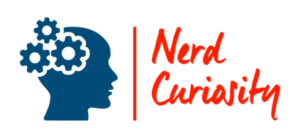As you embark on the rewarding journey of product management, a common crossroads presents itself: is a technical background essential for success in this dynamic role? The blend of business acumen, market insight, and user empathy are undisputed staples in a product manager’s toolkit, yet the debate on technical know-how remains ever-present. Especially in industries where the products are deeply rooted in technology, you might ponder whether an understanding of the intricacies of software development could be your ladder to excel.

Technical expertise is not mandatory for product managers. But in the realm of software and tech-centric products, it lifts the veil on engineering challenges and fosters stronger collaboration with developers.
With discussions drawing from different edges of the spectrum, the subsequent sections will guide you through a nuanced perspective. Delving deeper, you’ll discover how technical skills can enhance communication with engineering teams, inform decision-making, and potentially give you an edge in a competitive landscape. However, it’s the blend of soft skills, strategic vision, and customer obsession that often forges the hallmark of a successful product manager.
Role and Importance of a Product Manager

A product manager’s role intertwines various critical aspects of product development, ensuring that the final offering meets both market demands and business objectives. Your understanding of their responsibilities will shape your perspective on the necessity of technical expertise.
Defining the Product Vision
The product vision sets the long-term direction for the product’s journey, acting as a guiding star for all developmental efforts. As a product manager, you craft this vision by closely monitoring market trends and using insights to chart a path that is both innovative and realistic. This vision becomes a beacon for your team, informing every feature, enhancement, and pivot the product undergoes.
Understanding Customer Needs
A product manager must intimately understand customer needs to create a successful product. Your ability to empathize with customers and extract actionable insights is pivotal. This knowledge allows you to prioritize features based on what truly improves customer experience and meets their expectations. Collaborating with your team, you translate these needs into a robust product strategy that delivers value.
Aligning Stakeholder Interests
The alignment of stakeholder interests is a delicate balancing act you perform daily. As conflicting perspectives arise from various departments, your role is to harmonize them with the product strategy to keep everyone marching towards a unified goal. This includes convincing stakeholders of the importance of customer feedback and ensuring that every decision made bolsters the product’s vision and market position. Your adeptness at stewarding these relationships is as crucial as any market analysis or feature prioritization.
Technical Knowledge in Product Management

In the landscape of product management, you’re bound to confront the debate surrounding the necessary balance between technical know-how and pure management prowess. Let’s map out where technical expertise fits in this domain.
Technical Skills vs. Management Skills
Making products that thrive in the market requires a blend of various competencies. You need a technical foundation to speak the same language as your developers; this includes knowledge about the software development life cycle and ubiquitous tools like Git. Yet, management skills are equally indispensable – they enable you to guide your team effectively, steering the development process with a practical grasp of both team dynamics and project timelines.
- Technical Skills:
- Software development processes
- Technical writing
- System architecture understanding
- Management Skills:
- Leadership and negotiation
- Strategic planning
- Effective communication
The Myth of Technical Necessity
There’s a common belief that you must be as proficient in coding as you are in managing, but that’s not quite the reality. While technical knowledge is a boon, it’s not a strict requirement to excel in product management. Understanding technical aspects helps you earn the respect of your development team, but you won’t typically be expected to program yourself.
Balancing Technical Knowledge and Business Acumen
Your role pivots on a fulcrum between technical proficiency and business acumen. A successful product manager appreciates the intricate dance between these two skill sets. For instance, you should know enough about technical concepts to make informed decisions, yet your prowess truly shines in translating these details into business value. Fostering a user-first approach hones in on what actually matters: creating products that users love and drive business forward.
Professional Development for Product Managers

Your path as a product manager isn’t just about what you’ve already learned; it’s about how you evolve your skills to stay ahead in a dynamic field. Let’s explore the essential components of your professional growth.
Educational Background
When you’re building the educational foundation for a career in product management, a degree in business, marketing, computer science, or a related field can be extremely beneficial. This provides you with a solid base in essential concepts and practices. Furthermore, many professionals bolster their qualifications by completing specialized courses in product management to gain a deeper understanding of the industry’s needs.
On-the-Job Experience
There’s no teacher like experience. Working on real projects teaches you about team dynamics, project management, and problem-solving in ways no classroom can. You learn to anticipate needs, communicate effectively, and make strategic decisions. Each challenge you overcome is a stepping stone in your career path, creating a versatile and capable professional ready for anything the job throws at you.
Continuous Learning and Adaptation
The tech world is in constant flux, and part of your role is to adapt to change. Embrace continuous learning through webinars, workshops, and conferences. Keep an eye on the latest trends in software development, customer behavior, and market dynamics. Networking with peers and learning from them can also enrich your perspective and equip you with the foresight to drive successful products.
Collaboration with Technical and Non-Technical Teams

Product managers act as a bridge, connecting various teams within an organization. Your expertise in facilitating dialogue and cooperation can make or break a product’s success.
Effective Communication with Engineers
You’ll find that effective communication with engineers is not just about relaying information; it’s about translating the vision into technical requirements. Your ability to articulate goals and understand engineering language contributes significantly to harmonious collaboration.
Product Development and Design Process
During the product development and design process, your role is central. You must have a firm grasp on both the end-user’s needs and the feasibility of product features. Integrating input from design and engineering team members is crucial for innovative and practical solutions.
Cross-Functional Team Dynamics
Working in cross-functional teams demands that you understand and respect different perspectives. Encourage an environment where the development team, design, marketing, and sales can unite their strengths. Your openness enhances collaboration and can lead to a more cohesive teamwork dynamic.
Skills and Tools for the Modern Product Manager

The landscape of product management requires a blend of technical skills and tools, mastering which can vastly improve your effectiveness. Here’s what you need to hone:
Data Analysis and Market Research
Combining data analysis with comprehensive market research is crucial for informed decision-making. You’ll often find yourself sifting through datasets, looking for patterns and insights that can forecast trends and fuel product strategy. Tools like Tableau or Google Analytics become vital in making sense of this data, helping you translate complex information into actionable plans.
- Key Technical Tools:
- Tableau for visualization
- Google Analytics for web analytics
- SQL for database queries
Agile and Scrum Methodologies
Agile methodologies offer a framework to manage your product development with flexibility and efficiency. Scrum, a subset of Agile, provides a structure for iterative progress through regular sprints and meetings, such as daily standups and retrospectives. Embracing these methodologies ensures that your team can adapt quickly to change and maintain a high pace of innovation.
- Key Practices:
- Sprint Planning
- Daily Standups
- Sprint Reviews
- Retrospectives
Understanding Software Development
While you may not be writing code, a strong understanding of software development is essential. It’s beneficial for product managers to grasp the basics of programming, Git workflow, and the software development life cycle (SDLC). This knowledge ensures clear communication with your development team and helps with aligning product features with technical possibilities and limitations.
- Key Concepts:
- Software Development Life Cycle (SDLC)
- Basic Programming Knowledge
- Version Control with Git
Conclusion

In the world of product management, your technical aptitude can open many doors. You’ve likely encountered the debate on whether a deep dive into the technical domain is necessary. The insights gathered from industry experts suggest that, particularly in software and IT fields, a grasp of technical fundamentals is invaluable. For instance, understanding the technical performance of software products enhances your ability to liaise between engineering teams and stakeholders.
Your knack for technology is a tool, yet it’s not the only one in your belt. Remember, product management is multifaceted, interfacing with customers, business strategy, and market analysis. You may find solace knowing that a non-technical product manager can succeed with the right team and resources. Still, a technical background can offer you a fine-tuned lens through which customer feedback and development needs are translated into actionable strategy.
In your journey to become an effective product manager, balance is key. Embrace the technicalities when they align with your product goals, but don’t sideline the core competencies of product vision and user-focused design. It’s your synergistic skill set that ultimately drives the product forward, whether you can parse through code or excel in market positioning.
Remember, your adaptability and continuous learning will keep you ahead in this dynamic role. Whether you’re parsing through SQL queries or orchestrating user research, your growth mindset is your greatest asset. Stay curious, stay connected, and your technical expertise will evolve as you need it to.
